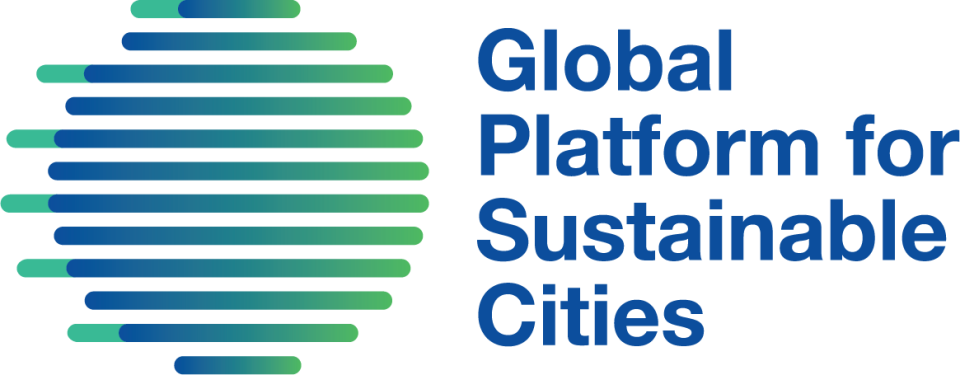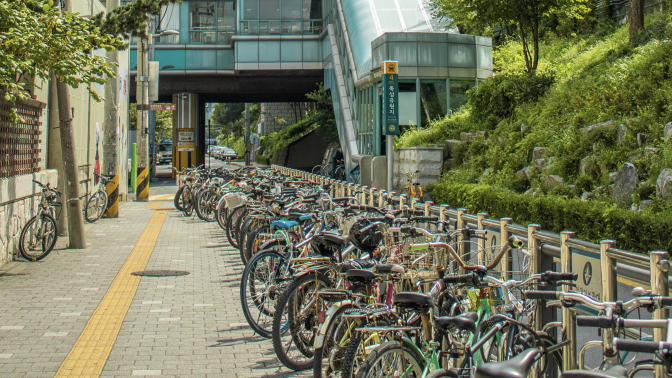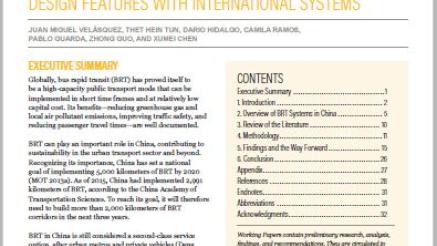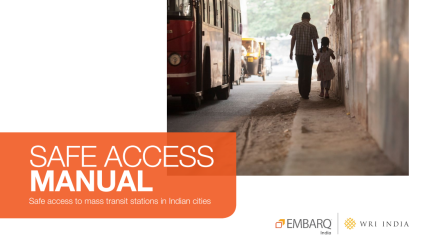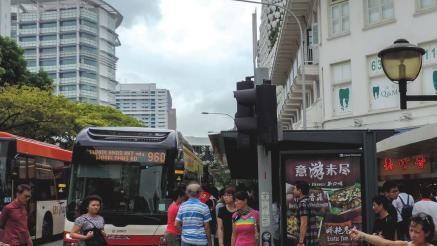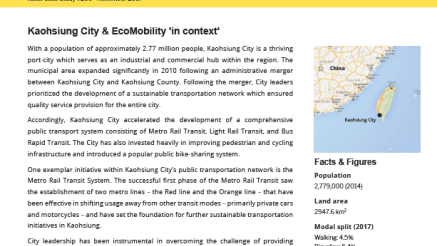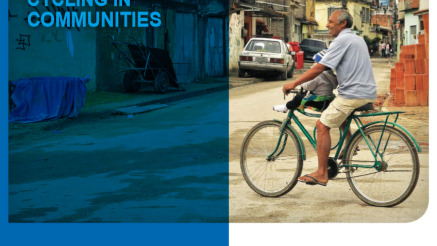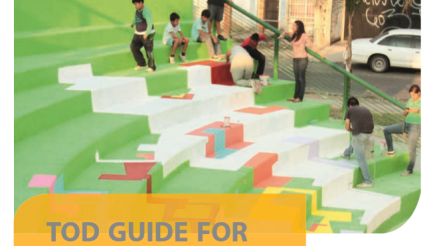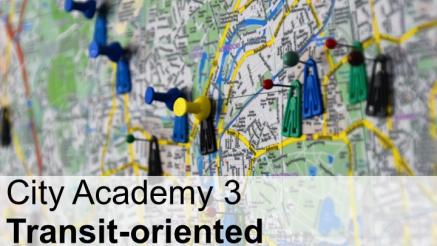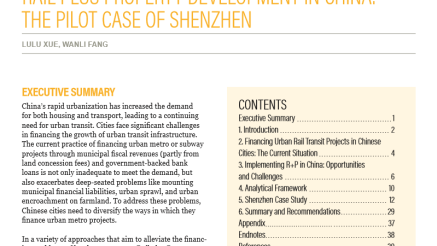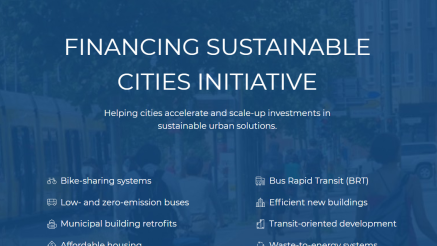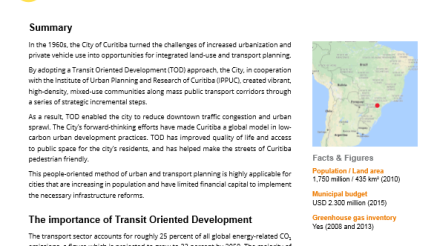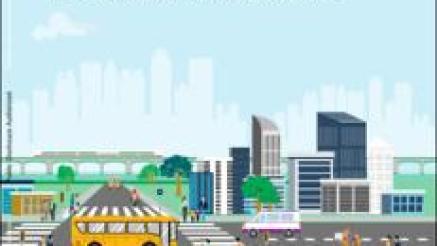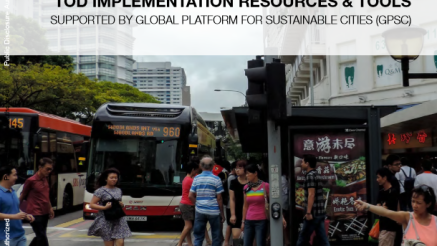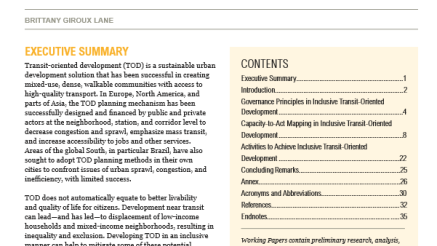Transit-Oriented Development
Public transportation is often a city’s best strategy to curb congestion and reduce greenhouse gas emissions. But rapidly expanding populations and insufficient financing resources pose significant challenges. Transit-Oriented Development, or TOD, offers innovative strategies that are both financially viable and environmentally friendly, deliver high-quality services, and create vibrant and livable.
What is TOD?
Transit-oriented development, commonly known as TOD, combines planning and financing strategies that promote mobility and walkability as primary modes of transport, and that supports vibrant, diverse, and livable communities.
TOD concentrates urban density within 5–10 minutes walk of mass rapid transit stations (both bus and rail), develops high-quality urban public space, and provides convenient and efficient access to a diverse mix of land uses. To achieve sustainable development, TOD brings together elements of urban design, land use planning, transport planning, urban regeneration, real estate development, land value capture, and infrastructure implementation. This powerful combination of tool enables city actors to negotiate the trade-offs of varying urban priorities to ultimately prioritize inclusion and resilience within an optimized environment. The World Bank considers these priorities as the bedrock of successful TOD. To achieve the concept’s full potential, it is essential that cities understand the complex dynamics between various urban systems.
Read the TOD Glossary of Terms below to understand the key terms used throughout the TOD knowledge product.
Why TOD?
Most rapidly growing cities in low- and middle-income countries are densely populated without formal public transit. Some of the densest cities globally, including Dhaka, Manila, Mexico City, and Mumbai are characterized by an insufficient or overburdened transit infrastructure.
The resulting deterioration in living conditions in urban cores is causing many cities to opt for suburbanization as the dominant development pathway, an approach that is less sustainable and more inefficient than leveraging TOD to support compact urban development. TOD offers low- and middle-income countries an urban growth opportunity supported by high-quality transit systems. Overall this development pathway aligns well-planned density with transit infrastructure.
Read the knowledge product’s TOD Case Studies to find out how cities around the world are leveraging TOD.
TOD Myths & Misconceptions
Because most well-known examples of TOD come from high-income countries, TOD is often considered not relevant to developing countries. This is a misconception. TOD is applicable in developing countries, but must be adapted to local contexts. Existing global TOD guidance has helped in conceptualizing and reinterpreting the concept for local application, but thus far successful implementation in developing countries has been limited. Borrowing from their high-income-country counterparts, cities such as cities such as Ahmedabad and Curitiba have applied TOD primarily as tools for densification by both public and private sectors, measured in terms of increased floor area ratios (FARs) or floor space index (FSI). Other cities, such as Guangzhou and Bogota, have been successful in linking transit improvements with pedestrian and cycling networks, but have not been able to influence development patterns.
The effective practice of TOD relies on the application of context-sensitive design standards, including building densities based on the characteristics of the areas surrounding transit stations, such as transit capacity, plot sizes, street widths, and infrastructure capacities. These and other factors that are part of successful TOD—such as innovative real estate negotiations, affordable housing near transit stations, or improved public realm design—are often ignored and compromised.
Overcoming TOD Challenges
Some of the key barriers to TOD in low- and middle-income countries were summarized in the World Bank Group publication Transforming Cities with Transit: Transit and Land Use Integration for Sustainable Urban Development (Suzuki, Cervero, and Iuchi 2013). They include the following:
- Lack of regional coordination at the metropolitan level;
- Sector silo behavior and practices at the city level;
- Inadequate policies and regulations for strategically creating “articulated densities” (densities that are strategically distributed);
- Restrictive national regulations and administrative constraints;
- Inconsistencies in the planning instruments and deficiencies in their implementation;
- Inadequate policies, regulations, and supporting mechanisms for redeveloping built-up areas, particularly brownfields or distressed and blighted districts;
- Neglected urban design at the neighborhood and street level; and
- Financial constraints.
Providing tools and resources to overcome these challenges for developing countries is the focus of this TOD Knowledge Product.
TOD Themes: Good Governance, Inclusiveness and Safety
Integral to the success of TOD is ensuring that it is well governed and inclusive for all. These two TOD themes can be defined as follows:
Effective TOD governance: Successful TOD relies heavily on the political capital of the city’s or jurisdiction’s leadership. A well-informed and committed leader can promote the concept of TOD to improve the everyday lives and experiences of citizens, while also building resilience. This is true irrespective of the type of leadership structure within a city. For a TOD planner, the very first step in building an enabling environment is to convince the leadership of the benefits TOD can bring to the citizenry, the environment, and public sector finances.
Cities that decide to commit to large TOD projects should create an official organization (task force, committee, or agency) that has deep ties to the TOD plan from its inception. This organization must be accountable to the public, operate transparently, and have a clearly articulated mission. The organization will promote the development of planning research, design master plans and regulations, oversee implementation and continued adaption of systems, and coordinate with planning guidelines and professionals from different levels of government and the private sector. It is crucial that this agency exists outside of the political sphere to ensure the long-term ownership, management, and security of its singular vision. To further ensure legitimacy, the organization should receive its budget from a percentage of the revenue garnered from the TOD. This arrangement motivates continued dedication to creating and maintaining the effectiveness of the system. A funding mechanism for management built into the TOD revenue streams will also ensure that this organization is exempt from political budgetary issues and protect the government from further economic stress. To learn more about TOD governance, explore EN-H01 of the Knowledge Products.
Inclusiveness in TOD: TOD stands to benefit everyone in a community, whether they regularly use public transit or not. Consequently, inclusivity is the key to successful TOD. A truly inclusive TOD process requires transparent collaboration with and consideration for the various stakeholders involved, including different genders, ages, abilities, and socioeconomic segments. In the TOD planning process, inclusivity depends on offering multiple opportunities for public engagement, in a variety of mediums, and on making project information readily available to all. Once operational, transit-oriented development should be accessible and enjoyable for all capabilities, ages, cultural groups, etc. To learn more about stakeholder engagement and TOD inclusivity, explore the TOD Knowledge Products PD-R02 and the Enable section.
Safe TOD: A well-executed TOD scheme has the potential of savings lives from road crashes both at city and neighborhood level. At the citywide level, TOD influences urban form and mode-choice, two very critical factors for road safety. The mixed-use land use developments, with active frontage and accessible services centered within safe walking and cycling distances around transit stations, encourage users to choose for transit combined with non-motorized commute over use of cars. This pattern of considerable mode shift minimizes exposure, i.e. the number of cars on the street, and thereby reducing the chances of conflicts. At the neighborhood level, TOD promotes more pedestrian-friendly streets with lower traffic speeds, which significantly improves the safety of the most vulnerable road-user group. To achieve safe networks within a TOD area, the “Sustainable Safety” principles of functionality, homogeneity and predictability are crucial for planning and designing of roads, so that they align with the TOD principles and can be integrated with the local context. To learn more about Safe TOD, explore AS-H-04 (How to Undertake Road Safety Assessment for TOD Areas) and PD-H-07 (How To Plan Safe Acc
Key Principles and Supportive Principles of TOD
Transit-oriented development can be both supported and encouraged in your city by following and applying TOD planning principles. The following are a series of design- and transit-supportive principles to ensure your city can successfully implement TOD:
- In addition to these TOD design principles, which focus on the three main realms that are impacted by TOD (transportation, open spaces, and the built environment), the TOD Knowledge Products provide guidance on the following supportive TOD principles: (1) climate resilience;
- universal accessibility;
- technology integration;
- inclusiveness;
- sustainable infrastructure;
- land value capture; and
- bicycle friendly.
For more information on TOD supportive and design principles, see tool PD-R02 in the Plan+Design section of the Knowledge Products.
